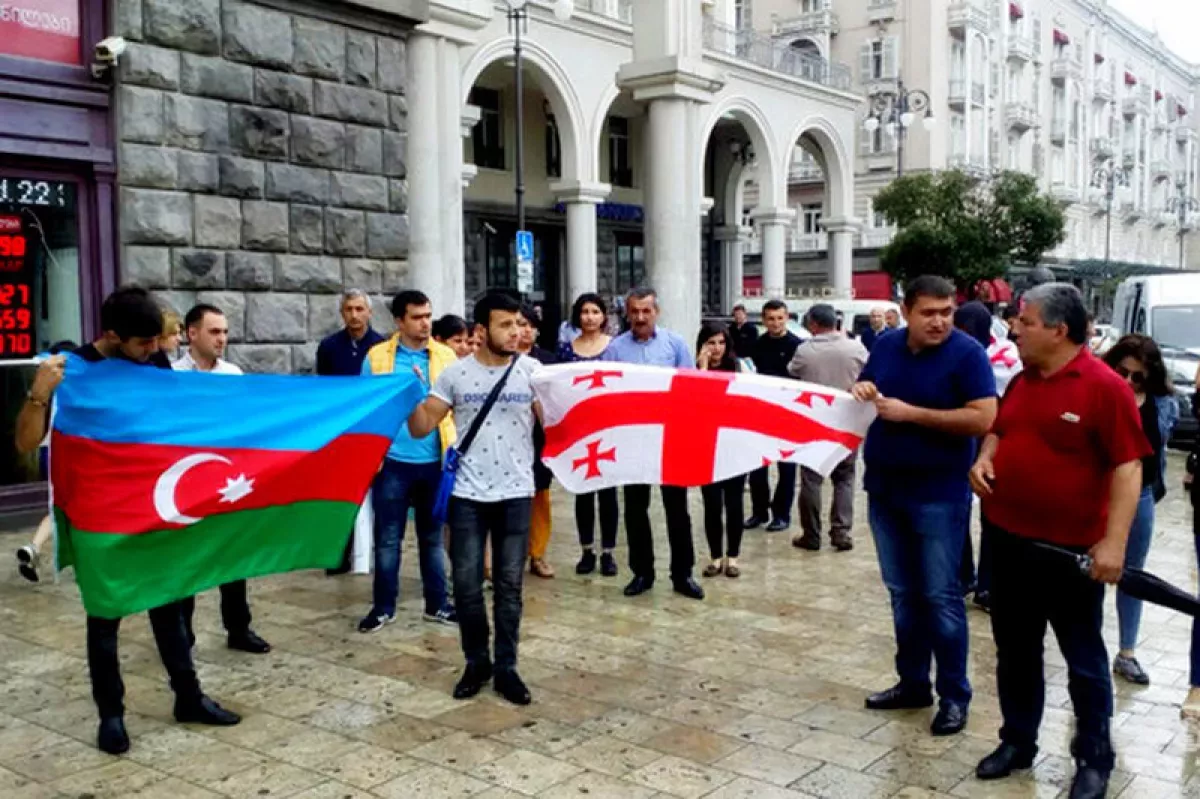The role of Azerbaijanis in Georgian parliamentary elections A vote for prosperity in South Caucasus
Georgia's parliamentary elections showed that the ruling party Georgian Dream – Democratic Georgia received approximately 1.12 million votes after tallying results from 3,100 polling stations (99.7%), accounting for over 54% of all ballots cast, with voter turnout at about 60%, as per data from the country's Central Election Commission.
As for the four opposition coalitions, they collectively garnered just over 37.5% of the vote. It’s worth noting that this election marked the first time the parliamentary vote was held under a proportional representation system and utilized electronic voting technologies.
In his congratulatory message to Georgian Prime Minister Irakli Kobakhidze, Azerbaijani President Ilham Aliyev warmly congratulated the head of government on the ruling party's victory, referring to it as the "leading political force" in Georgia. Notably, the head of state emphasized that the election results reflect the Georgian citizens' support for a course focused on development, stability, and traditional values, which will contribute to the country’s "comprehensive prosperity."
Ilham Aliyev also expressed confidence that the election results would contribute to the "continuous development of Azerbaijani-Georgian relations, which stem from the will of our peoples who have historically lived in a spirit of friendship, brotherhood and good neighbourliness, and further enhancement of the authority of our countries in the South Caucasus and the wider region."
Inviting Irakli Kobakhidze to visit Azerbaijan, President Aliyev said: “I would like to invite you to pay an official visit to Azerbaijan at a time convenient for you to continue our political dialogue. I am confident that we will continue to make joint efforts to strengthen our strategic partnership and successfully continue our mutually beneficial interaction on a bilateral and multilateral basis for the welfare of our countries and peoples, and for the prosperity and security of our region.”
It’s fair to say that the message speaks for itself, once again reaffirming the unbreakable bonds of friendship and good neighbourliness between the peoples of Azerbaijan and Georgia.
Paying attention to what Kobakhidze said at the briefing, we note his specifics about the Georgian people's choice of the “only, non-alternative” path to peace, development and a “bright European future”. In light of this, he thanked every person who took part in the election campaign, which led to a “very impressive victory”.

In this context, it’s worth noting the significant role of Georgia's Azerbaijani population (around 300,000) in the election, whose active participation was crucial to the campaign's results. This engagement has drawn attention from both political circles and experts in the country. By casting their votes, the Azerbaijani community made an existential choice in favour of Tbilisi’s official anti-war stance, supporting peace and the preservation of traditional cultural and spiritual values.
Leading Western media highlighted the “long lines” at polling stations, with analysts noting the high turnout among Azerbaijani residents, who contributed roughly 7–8% of total votes for the ruling party. This demonstrates the community’s considerable potential to influence Georgia's socio-political landscape beyond electoral politics. Their choice to firmly oppose efforts by external forces to destabilize the country through civil unrest underlines the crucial role of Azerbaijanis in preventing a militarized, conflict-ridden environment.
Thus, the choice made by Georgia's Azerbaijani population, who confidently voted against attempts by vested external forces to destabilize the country by inciting civil confrontation, demonstrated the crucial strength of Azerbaijanis in preventing the emergence of a militarized civil conflict confrontation in the state. In this regard, there is surely hope that both Georgian Dream and the state authorities will make significant efforts to understand and positively address the various issues facing the Azerbaijani population.
In general, as noted in the immediate aftermath of Georgia's parliamentary elections, the positions of Baku and Tbilisi regarding stability and security in the region are aligned. This clearly contrasts with Armenia's approach, whose actions in the South Caucasus directly contradict the interests of the peoples in the region. In other words, while Yerevan continues to follow the lead of one external country or another (if not a group of countries), the governments of Azerbaijan and Georgia steadfastly pursue a path to strengthen national independence and sovereignty. They understand that only this trajectory can bolster their standing globally, showcasing the role and influence of Baku and Tbilisi within the emerging new world order. This approach is crucial to prevent certain foreign forces and international organizations from turning the South Caucasus into a permanent zone of turbulence, as seen in other parts of the world.








